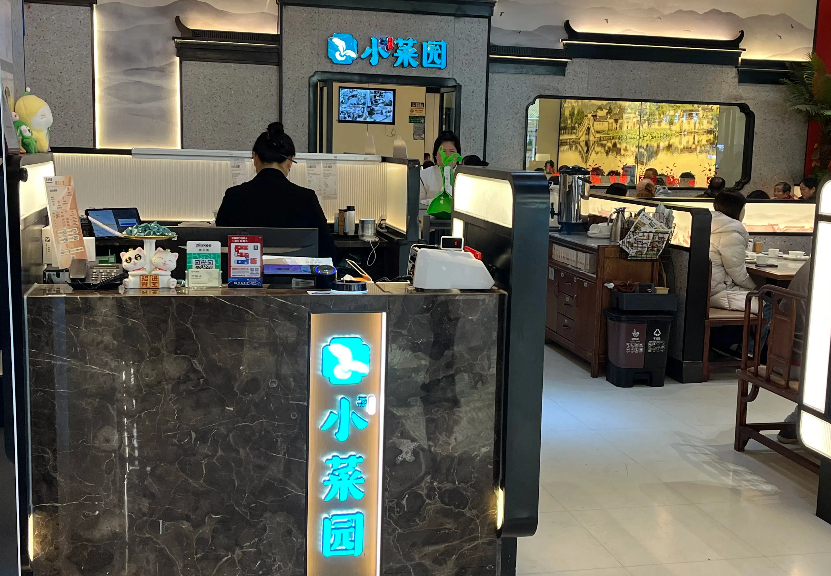China’s largest “cheap eats” restaurant chain was cleared by the Hong Kong Stock Exchange to make its IPO after its third filing this year
Key Takeaways:
- Xiaocaiyuan has passed the listing hearing for its Hong Kong IPO, as a reviving stock market gets set to welcome China’s “home kitchen”
- The affordable restaurant operator is hoping to whet investor appetites with 15.4% and 1.5% growth in revenue and profits, respectively, in the first eight months of 2024
By Edith Terry
Sometimes delaying a lunch date can be a good thing. When Xiaocaiyuan International Holding Ltd. made its first application for a Hong Kong IPO back in January, it had just served up a tasty year financially in the domestic Chinese market for low-cost homestyle cooking, as consumers rushed to celebrate the end of pandemic restrictions.
But the financial market lacked appetite for new listings back then. In the first half of the year, new Hong Kong listings raised just HK$11.6 billion ($1.49 billion) across 27 deals, down 35% and 15%, respectively, year-on-year, according to accounting firm KPMG. That made it 13th in the global IPO rankings – a steep fall from the glory days between 2009 and 2019, when Hong Kong was the world’s top IPO market no less than seven times.
Xiaocaiyuan – whose name means Little Vegetable Garden and calls itself China’s “home kitchen” – let its January application lapse, then tried again, with the same outcome and the same sponsors, Huatai International and UBS Securities. It finally got the green light on Dec. 4 when it passed its Hong Kong listing hearing, and on Thursday this week submitted its latest filing that includes financial data for the first eight months of this year.
The company also filed new information on the offering the same day as the latest prospectus, saying it plans to sell 101 million shares for HK$8.50 each, which would raise about HK$860 million ($110 million) and value Xiaocaiyuan at about HK$9.1 billion.
The company’s latest financials are good but not great. Xiaocaiyuan’s profit rose just 1.5% year-on-year in the first eight months of 2024 to 400 million yuan ($52.3 million), far slower than the whopping 124% increase for all 2023 after the pandemic’s end. Revenue fared a bit better, rising 15.4% for the eight-month period to 3.54 billion yuan, though that was still down notably from the 42% gain in 2023 when the figure reached 4.5 billion yuan.
Generally speaking, 2024 has been a much leaner year in the restaurant trade after a strong post-pandemic rebound in 2023. Budget-friendly chains like Xiaocaiyuan, bubble tea chain Mixue Bingcheng and Haidilao (6862.HK) have all struggled to maintain business by cutting prices and venturing into foreign markets. Like Xiaocaiyuan, Mixue and rival bubble tea maker Guming filed applications to make Hong Kong IPOs in January. They never completed the listings and their applications lapsed, though signals recently emerged that Guming may be getting to refile.
Xiaocaiyuan hasn’t escaped the general turmoil in the catering business. Its average daily sales per restaurant were down by 15%, from 28,565 yuan in the first eight months of 2023 to 24,491 yuan in the first six months of this year. The figure is even lower for restaurants that opened this year at 19,710 yuan. Same-store sales were also down by 11.4% in the first eight months of the year, with the company’s restaurant-level operating margin dropping more than 3 percentage points to 17.8% from 21.3% a year earlier.
The embattled group is hoping things may improve after Beijing’s recent series of fiscal and monetary stimulus measures. While that remains to be seen, the measures have had a positive effect on Hong Kong’s benchmark Hang Seng Index, which is up nearly 20% since mid-September, unleashing a recent flood of new listings. According to EY Greater China, Hong Kong bounced back to fourth place globally in IPO rankings as of December, with 64 IPOs so far this year and proceeds of HK$83.4 billion.
Strong performers
Recent China consumer IPOs have done well in both Hong Kong and New York. Cosmetics firm Mao Geping (1318.HK) raised HK$2.34 billion in its IPO and saw its shares rise by 70% in their first day of trading on Tuesday. And Super Hi International (HDL.US), a spinoff of Haidilao, has seen its shares rise 26% from their Nasdaq IPO listing price in May.
So what can we expect for Xiaocaiyuan? The latest prospectus contains a lot of good news. The company used its boom year in 2023 to pay off debt, so it now has no debt. Its cash flow was also a healthy 556 million yuan last year, more than enough to fund the 180 new restaurants it plans over the next two years at a cost of 1.3 million yuan to 1.7 million yuan each. The company currently operates 663 restaurants across 14 provinces, mostly in China’s wealthier eastern and southern coastal cities.
By the end of 2026, it expects to operate 1,000 restaurants under its signature Xiaocaiyuan brand. That may not sound like much compared to McDonald’s 5,900 Mainland China restaurants. But it would come close to Haidilao’s 1,320 and would be more than the 771 restaurants for Jiumaojiu (9922.HK), including 18 outside China, as of June 30.
Given its low debt and strong cash flow, Xiaocaiyuan maintains that its expansion is on track. It says it’s the largest of China’s top five restaurant brands in the mass market space for 50 yuan to 100 yuan in spending per customer. But its market share in that space was just 0.2%, about the same as its two closest rivals, according to its prospectus.
Another positive for Xiaocaiyuan is its delivery business, whose revenue doubled in the pandemic year of 2022, and whose share of the company’s overall revenue grew from 15.5% in 2021 to 37% in the first eight months of 2024. The delivery business grew by 38% in the first eight months of 2024 year-on-year. Meanwhile, the share of revenues generated from in-restaurant dining fell from 84.5% in 2021 to 62.7% in the first eight months of 2024.
The company’s final fundraising total of $110 million represents a slight downsizing from earlier reports saying it was seeking $150 million to $200 million when it first filed to list in January. It has said that it will use proceeds not only to fund restaurant expansion but also for expansion of its warehouse and logistics network, and for one or two new central kitchens, in addition to its central kitchen in Anhui.
Another new venture is community catering, which the company sees as a future growth driver. Xiaocaiyuan plans to roll out 110 to 140 such community catering restaurants from 2025 to 2026, under a new, super-low budget brand called Caishou. That would represent a rapid buildup from just three such restaurants in operation as of August. Each of those will cost between 1 million yuan to 1.3 million yuan to build. Xiaocaiyuan anticipates average customer spending of between 20 yuan and 40 yuan, but believes it can serve a market of increasingly budget-conscious diners expected to be worth 2.1 trillion yuan by 2028.
To subscribe to Bamboo Works weekly free newsletter, click here


